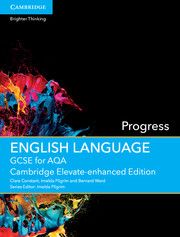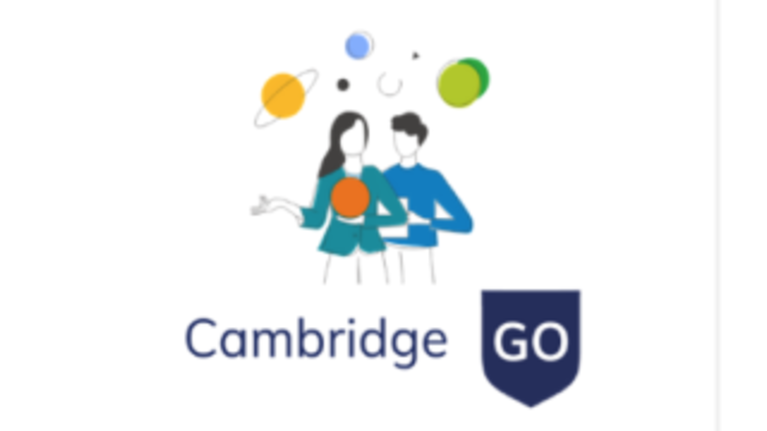Written for the AQA GCSE English Language specification for first teaching from 2015, this enhanced digital resource is designed for students targeting Grades 1 to 5, with extension activities to facilitate achievement beyond this. With progress at its heart, this differentiated resource covers a range of 19th-, 20th- and 21st-century texts and has SPaG support throughout. These GCSE English Language Digital Editions include bespoke video content. Available online and on tablet devices through the Cambridge Reader app.
Features
- A single one-year site licence for an unlimited number of teachers and students.
- The Digital Student Books are fully customisable and interactive, with extensive annotation and bookmarking tools making texts more accessible for students.
- ‘Assess to Progress’ on Digital edition provides expert marking support, progress tracking and reporting to save teachers time.
- The Digital Student Books include rich digital content created by English teachers with students’ needs in mind.
- The Digital Student Books allow teacher–student messaging, helping you connect with your class in a timely and practical way.
- Available online and on tablet devices through the Cambridge Reader app.
- Spelling, punctuation and grammar are fully integrated throughout the resource.
- Features high-quality 19th-, 20th- and 21st-century texts across a range of genres, specifically selected to help students prepare for challenging unseen texts.
- A spoken language section helps students develop their skills as speakers, presenters, listeners and responders.
- Free Digital Teacher’s Resources with each Digital Student Book allow for easy linking and cross reference, and provide comprehensive planning support with additional opportunities for differentiation and extension.
Table of Contents
- Introduction
- READING: Unit 1. Identify and explain information
- Unit 2. Select, interpret and collate information
- Unit 3. Interpret and comment on meaning
- Unit 4. Examine how writers use language to influence readers
- Unit 5. Examine how writers create and use tone
- Unit 6. Explore how writers use language to describe
- Unit 7. Explore how writers order and organise texts
- Unit 8. Explore structure in fiction
- Unit 9. Write about structure
- Unit 10. Test your progress 1
- Unit 11. Understand viewpoint
- Unit 12. Examine similarities and differences in viewpoint
- Unit 13. Compare writers' viewpoints
- Unit 14. Judge for yourself
- Unit 15. Evaluate texts and support the points you make
- Unit 16. Test your progress 2
- Unit 17. Wider reading 1: Investigate story openings
- Unit 18. Wider reading 2: Reading sources from different genres
- SPOKEN LANGUAGE: Unit 19. Prepare and give a presentation
- WRITING: Unit 20. Write for purpose and audience
- Unit 21. Write effective sentences
- Unit 22. Use effective vocabulary
- Unit 23. Control your writing
- Unit 24. Create tone to influence your reader
- Unit 25. Make choices to organise and write
- Unit 26. Test your progress 3
- Unit 27. Describe effectively
- Unit 28. Tell a good story
- Unit 29. Make your point
- Unit 30. Craft your writing
- Unit 31. Spell accurately
- Unit 32. Test your progress 4
- PREPARING FOR YOUR EXAM: Set 1 practice Paper 1
- Practice Paper 1: Make progress
- Set 1 practice Paper 2
- Practice Paper 2: Make progress
- Set 2 practice Paper 1
- Set 2 practice Paper 2
- Glossary
- Acknowledgements
Advice on useful tools
Advice on useful tools, activities and timetabling from teachers experiencing school closures.
Cambridge GO
All our supporting resources have now moved to Cambridge GO – the new home for your Cambridge digital content.
Listen to our podcast
Listen to our podcast to discover teaching inspiration & advice from leading educational thinkers.




